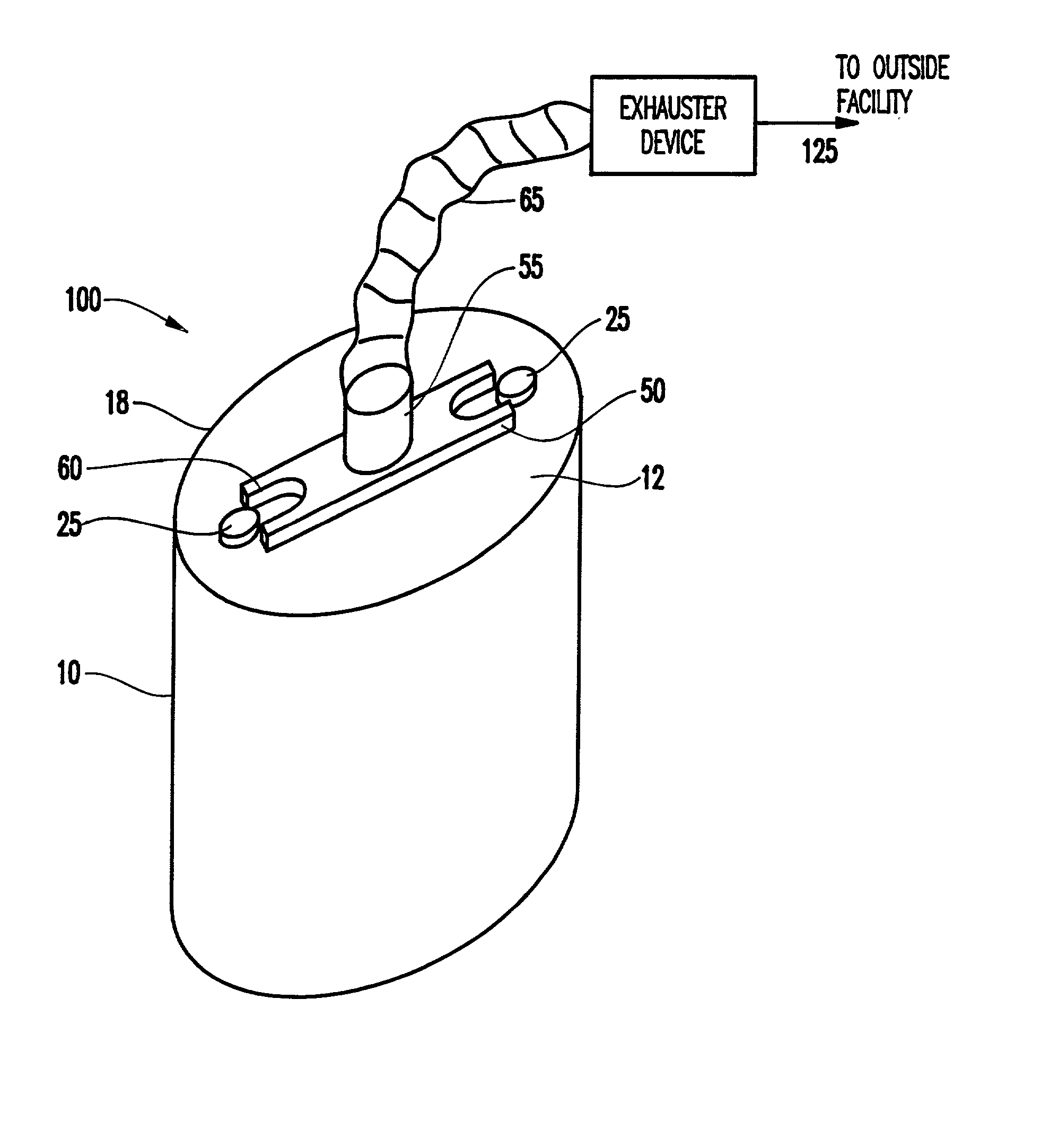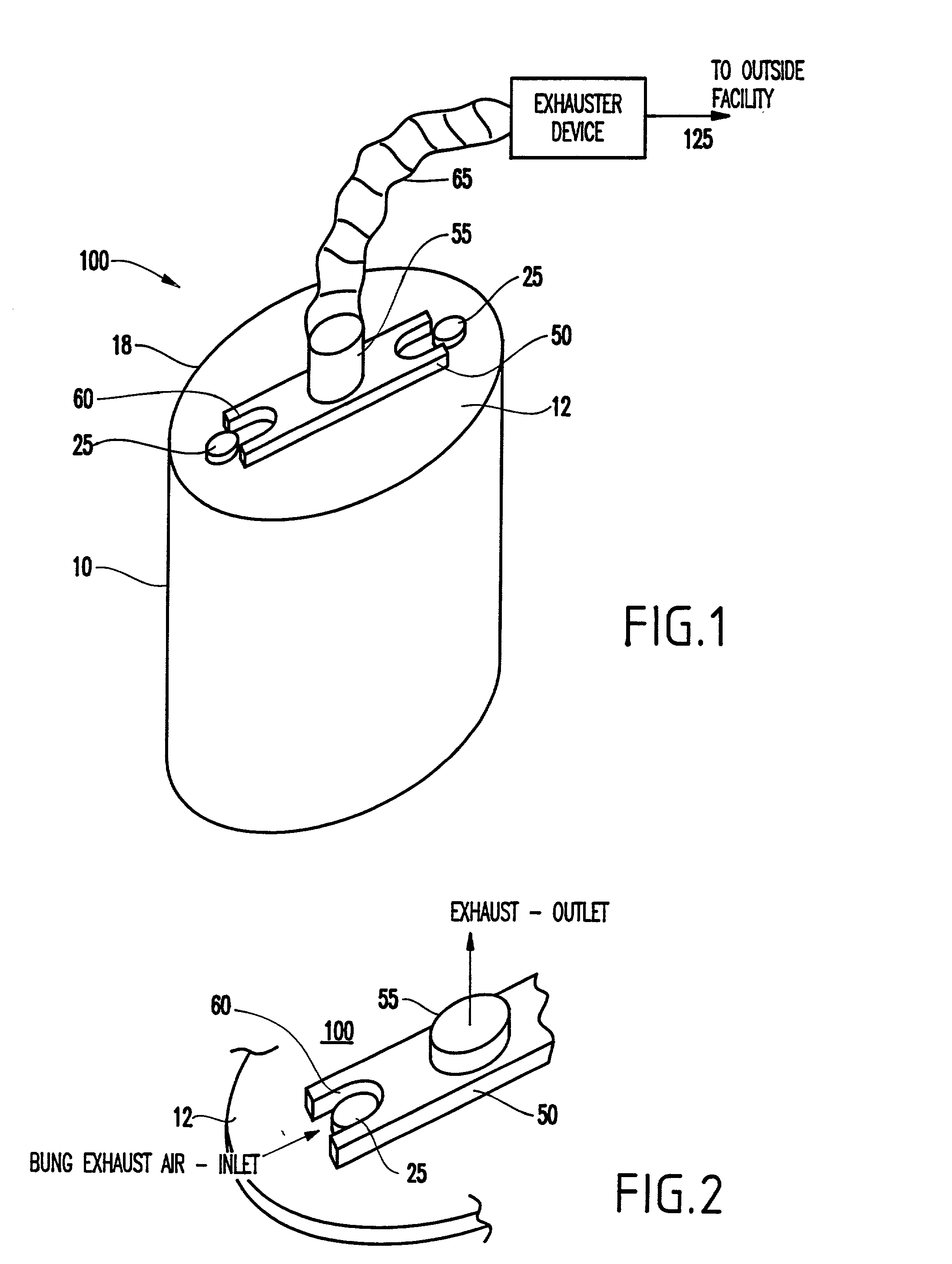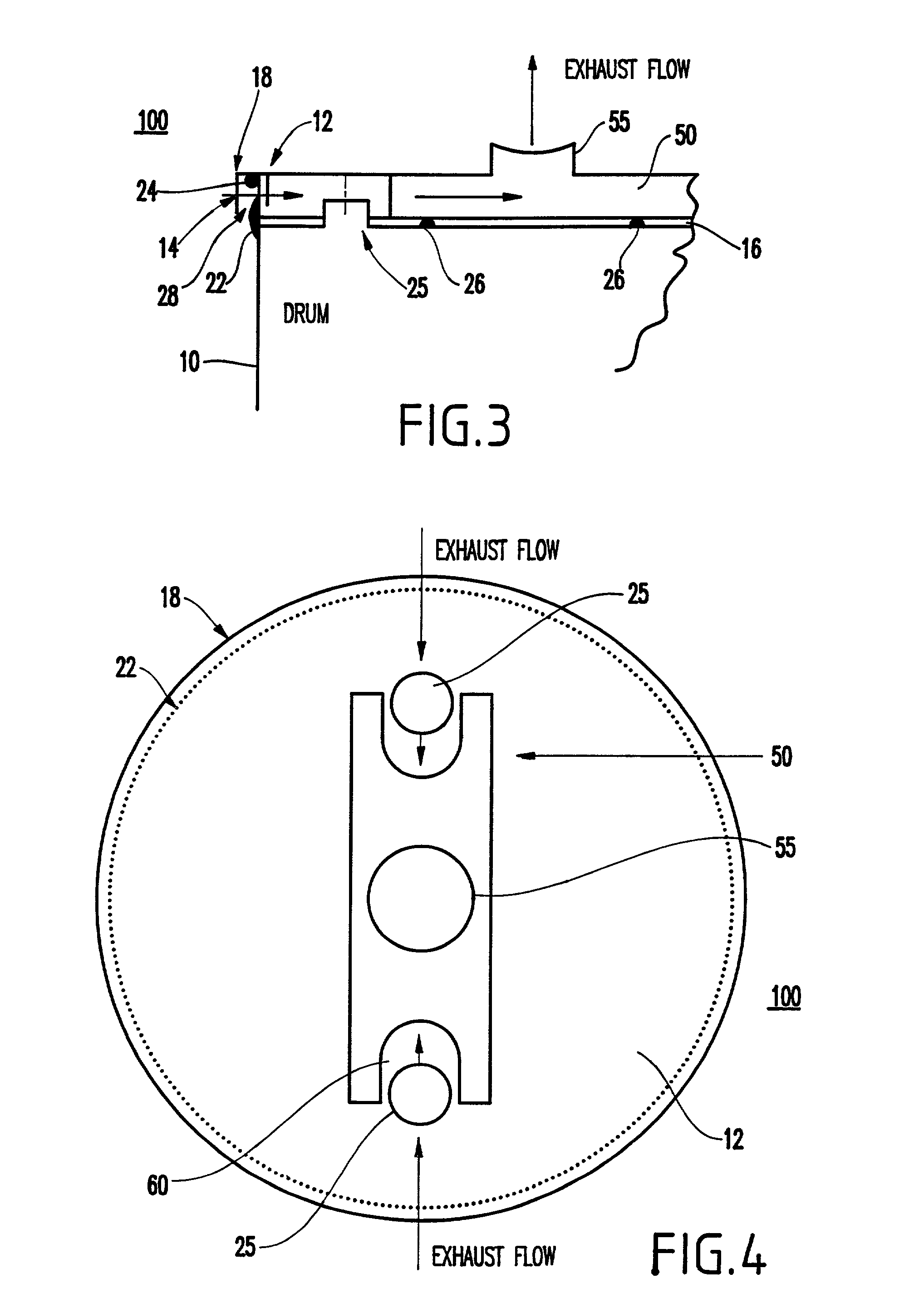Venting device for hazardous material containers
a technology for hazardous materials and lids, applied in liquid handling, packaging goods, separation processes, etc., can solve the problems of reducing the access of operators to the bung hole, cumbersome and inefficient approaches, and inefficient operation
- Summary
- Abstract
- Description
- Claims
- Application Information
AI Technical Summary
Benefits of technology
Problems solved by technology
Method used
Image
Examples
Embodiment Construction
[0019] The preferred embodiments of the present invention and its advantages are best understood by referring to FIGS. 1 through 4 of the drawings, like numerals being used for like and corresponding parts of the various drawings. The chemical industry uses various containers for chemical products. One of the most common types of drums is a thin wall steel drum that is typically manufactured in a fifty-five (55) gallon capacity. Such drums include a cylindrical side wall and a pair of circular ends. One of the ends, referred to as a lid, typically provides a pair of openings or bung holes, one of which is a larger opening for dispensing and filling the drum container, the other of which is a smaller opening for venting the container. The bung holes can be the same or a different size. The invention herein is preferably a separate venting lid cover 100 having an integral exhaust duct member attached to the plate member. The cover 100 captures chemical vapors that emanate from the ope...
PUM
 Login to View More
Login to View More Abstract
Description
Claims
Application Information
 Login to View More
Login to View More - R&D
- Intellectual Property
- Life Sciences
- Materials
- Tech Scout
- Unparalleled Data Quality
- Higher Quality Content
- 60% Fewer Hallucinations
Browse by: Latest US Patents, China's latest patents, Technical Efficacy Thesaurus, Application Domain, Technology Topic, Popular Technical Reports.
© 2025 PatSnap. All rights reserved.Legal|Privacy policy|Modern Slavery Act Transparency Statement|Sitemap|About US| Contact US: help@patsnap.com



